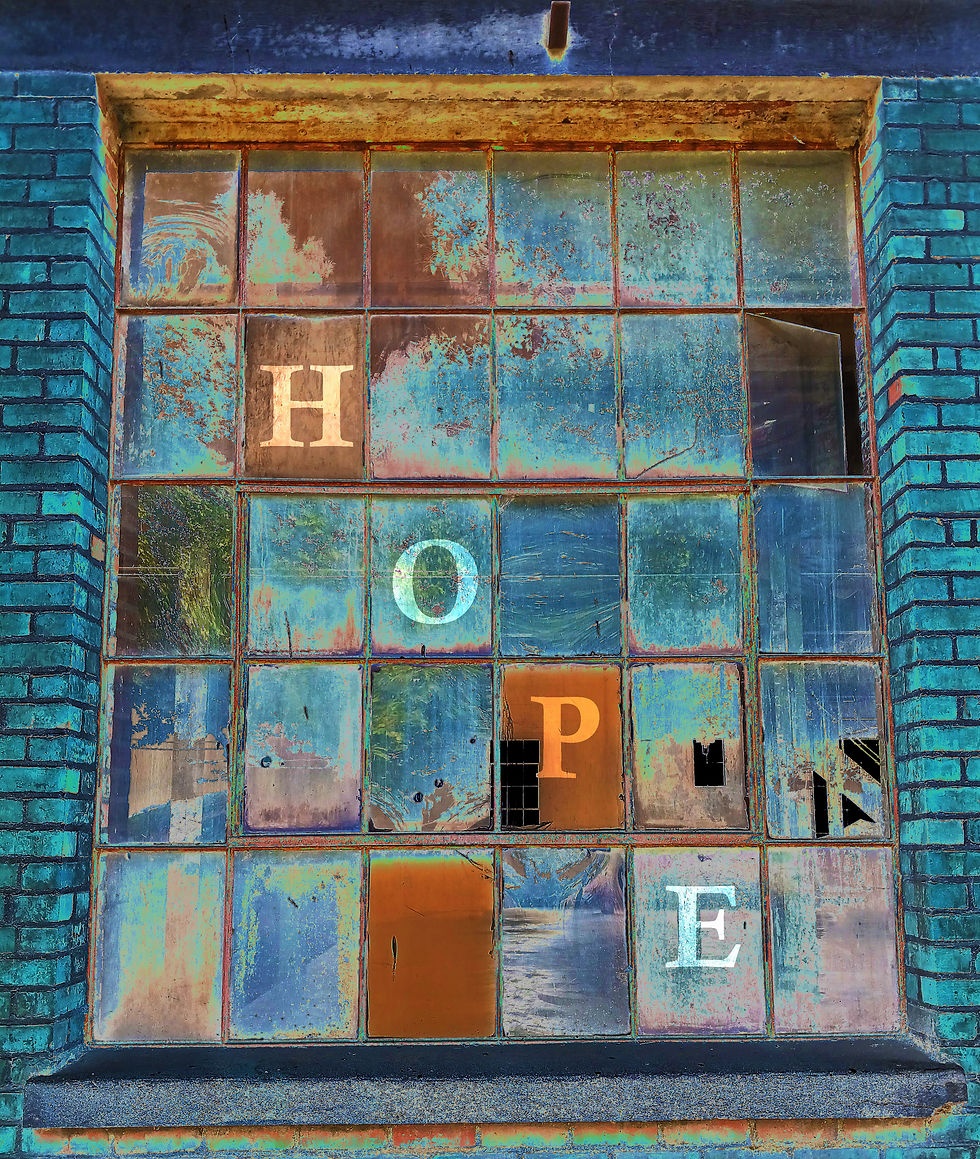Hope is Contagious
- Michael J. Adee
- Jan 30, 2023
- 4 min read
Updated: Jan 14, 2024

Hope is the thing with feathers That perches in the soul, And sings the tune without the words, And never stops at all, And sweetest in the gale is heard; And sore must be the storm That could abash the little bird That kept so many warm.
I’ve heard it in the chillest land,
And on the strangest sea; Yet, never in extremity, It asked a crumb of me. - Emily Dickinson (1830-1886)
I am what some might call an eternal optimist. I wake up happy and I am even happier after a good cup of coffee and an English muffin, a vehicle for butter. I was adopted by parents who loved my older brother Steve and me with fierce, unconditional love. I was loved into faith by a small Presbyterian church in southern Louisiana. After affirming being gay and experiencing rejection in the workplace and society, I was loved back to faith by Mount Auburn Presbyterian Church, Cincinnati, Ohio. I am an optimist because I am a person grounded by hope.
I am grateful for the gift of hope. I have often clung to Emily Dickinson’s image of hope as a bird perching in my soul singing a tune without the words in the midst of proverbial and actual storms in my life and, of late, in our country and world with the global COVID-19 pandemic, the Russian war on Ukraine, political and economic distress. Hope is present in the midst of these storms. Hope is now a daily, if not hourly, necessity, not a rare extravagance.
As a person of faith and a human rights activist working for the equal rights, acceptance, and human dignity of LGBTQ+ people and their families, hope is an essential resource. It is an anchor offering perspective in the midst of the current political attacks on the LGBTQ+ community, particularly transgender children, students, and their families. I am a survivor of the first culture wars, and I must confess that I am profoundly disheartened to see targets being painted on the backs of trans children for political gain in this new wave of culture wars. As before, too much of this is done with religious sanction and fervor.
So, hope is a survival tool in addition to being a gift in the midst of a storm, an anchor while working for a more fair, just, and loving world for all. Hope is best not confused with a wish. One might say, “I hope it doesn’t rain today,” which is a wish.
During an interview when asked about his cheerful disposition, Desmond Tutu offered this declaration of clarity, saying that he was “a prisoner of hope” in the midst of working to end apartheid in his beloved South Africa. For Desmond Tutu, “Hope is being able to see that there is light despite all of the darkness.” The power of this definition of hope comes from the person, their context and circumstances. Who is saying this to us and in what context? A faith leader standing up to one of the most powerful white supremacist regimes in modern times: Desmond Tutu, the first black Anglican archbishop during apartheid in South Africa.
Before entering the international stage of human rights work, I spent the good part of my adult life working to end the barriers to LGBTQ+ people serving in the Presbyterian Church (USA). There was no question, the odds were against change. And yet, somehow we believed change was possible even if we might not see it in our lifetimes. We held on to hope and each other. Hope became a collective experience. Hope is contagious.
Desmond Tutu and His Holiness The Dalai Lama became good friends. They spoke at global forums together. Their affection for life and each other was captured in a number of extraordinary photos, including a delightful one of them dancing together. They wrote a book together in 2016, The Book of Joy: Lasting Happiness in a Changing World. Their lives, teachings, and legacies inspire hope.
Reflecting upon the place of hope in my life and in the lives of Dickinson, Tutu, and The Dalai Lama, surely the seeds of hope are love, belief, and joy. Hope is a gift, a necessity, and it is contagious. Hope is present in the storm, it is the light shining in the darkness, it is the tune that never stops at all. Here’s to hope, inside you and me, and available to all of us.
Michael J. Adee, M.Div., Ph.D. is an educator and human rights activist. He earned his Ph.D. in Communication at Louisiana State University. He has been working in the LGBTQ+ and HIV-AIDS communities since 1988. He has been a university teacher, hospice chaplain, and campus minister. He served as a relief worker in Zimbabwe. He served with More Light Presbyterians and directed their successful campaign to end barriers to LGBTQ+ ministers in the Presbyterian Church (U.S.A.). He is the founder of the Global Faith and Justice Project. He taught LGBTQ+ courses at San Francisco Theological Seminary. After Katrina, he created RainbowCorps to rebuild houses in New Orleans. He has competed in tennis in ten Gay Games and World Outgames. He climbed Mount Kilimanjaro as a benefit for LGBTQ+ equality. His home is Santa Fe, New Mexico.
Photo credit: Krin Van Tatenhove


Comments